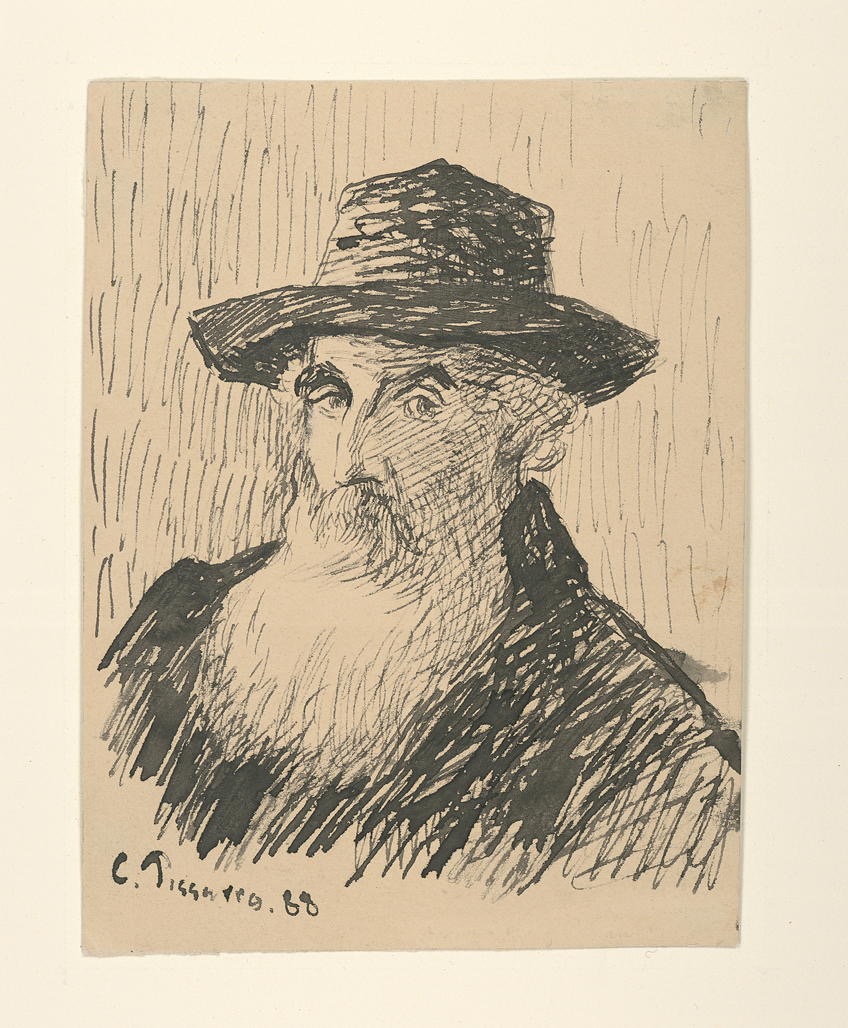Self-Sacrifice

Camille Pissarro: Self-portrait (Undated, circa 1888)
"Never get yourself so busy not doing your job that you can't properly not do your job."
The Muse and I arrived at the convention hall feeling hopeful despite the frustrating time we'd had attempting to properly prepare for the experience. After reviewing the first draft of the party platform document, I'd started before the prior weekend to influence the final wording, which I found primitive and demeaning. Our Legislative District Chair first deflected my suggestion that he invite delegates to talk through the document to identify areas needing improvement. The Chair explained that he was too busy to convene anything before finally agreeing to try to schedule a session over the upcoming weekend. He hadn't scheduled the session, so The Muse and I arrived feeling as though we'd missed an opportunity to influence anything there.
Further, the day before, we'd learned that the platform committee on which our Chair had served had unanimously adopted a plank that could tank every candidate's opportunity for election in the current race. We'd tried to convene a group of equally concerned delegates the day before but learned late in the day that there was clearly no way remaining to delete the offending element. A late call to our Chair, in which The Muse wondered if this issue might be worth disrupting the convention, yielded a steadfast refusal of support from the Chair. We felt as though we'd been denied access to the system by the very person who was charged to ensure our access, and we were a tad pissed.
As we approached the table reserved for our district's delegates, there was the Chair complaining that he'd only gotten two hours of sleep, partly due to the late call he'd made to the party chair to report that members of his delegation had threatened to disrupt the convention. He tied into The Muse, accusing her of trying to undermine the operation and threatening to have her barred from attending the convention and the candidate whose campaign she's managing barred from the party. It's not every morning that starts with someone threatening my wife. The Chair insisted that The Muse and the Candidate repent and apologize for threatening the convention. The Muse replied that she had not threatened the convention and had merely been asking if that might be an effective strategy since the issue in question was clearly monumental. I replied that The Muse and the Candidate might appreciate his apology, given that he'd blown an innocent question all out of proportion.
The Chair angrily dismissed me, saying that he was currently dealing with The Muse. I snapped, replying that I would not work with him, calling him a jerk, and left the floor. I spent the day attending the convention from the safety of the hall lobby, following along and voting via their remote access links. It was a real hassle to be just outside, unable to hear the proceedings, voting rather blindly, and struggling to follow along. Still, it beat immersing myself in the hostile environment our Chair had created. I will not tolerate disrespect, especially the self-righteous sort often shown by people who have mistaken Self-Sacrifice for deep commitment. Our Chair had gotten himself so busy that he had violated the first principle of leadership, which might be never to get yourself so busy not doing your job that you can't properly not do your job, for no leader ever manages to completely fulfill their charter. They're busy, distracted, and focused in so many directions that some dereliction of duty seems a given. But there are many degrees of dereliction, some of which reliably prove damning. The most damning ones fall just beyond Self-Sacrifice.
The calculus never works, that one might manage more by sacrificing the only element capable of coping. Engaging without one's self engaged couldn't possibly improve anything. Yet, it remains one of the more popular delusions leaders engage in—showing up with two hours of sleep to lead a delegation—a clear dereliction. And the Chair failed to lead his delegation, mistaking his position—he had been named chair of chairs for the convention—as a license to do whatever he personally pleased. He did not consult with his delegates, seek their advice or council, or attempt to represent their perspectives, though he had secured for himself permission to speak before the convention on several topics of little interest to either our delegates or our district. I was glad I had distanced myself from his performance.
The Chair left the convention without thanking those who’d come across the state to represent his district. He complained that he'd have to drive back home, two hundred and fifty miles, with only those two hours of sleep with which he had started his day. Arriving home, he posted a last gasp to social media, explaining that he was then going on forty-eight hours on two hours of sleep and might sleep in a bit in the morning, though he had a full day scheduled. As my mom used to insist, there's no rest for the wicked. He slept, no doubt, with little idea just how monumentally he'd fucked up. Other delegates had asked The Muse if I was okay after abruptly disappearing. She insisted that I was just taking care of myself. She'd seen me disappear before in the interest of my own safety. I've dealt with despotism. I understand that it's almost always inadvertent but cannot come to understand itself without receiving some shocking experience in reply. I could not bear to stand by and watch as he engaged in the most obvious kind of self-destruction. If you leave yourself out of the equation, you become invulnerable to the very persuasion you need to start properly not doing your job again.
Distancing myself from this kind of collision amounts to a back-handed form of Grace.
©2024 by David A. Schmaltz - all rights reserved


